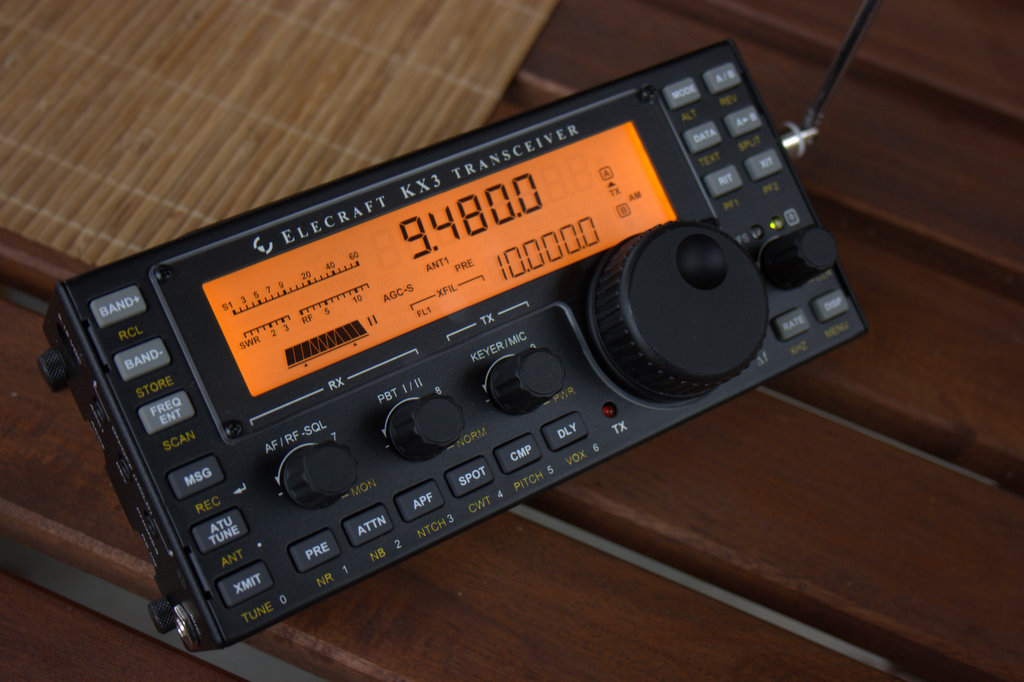(Source: ARS Technica)
by Rupert Goodwins
It’s a good time to be technical. Maker communities are thriving around the world, tools and materials to create and adapt are cheaper and more powerful now than ever, and open source hardware, software, and information mean that if you can think it, you can learn how to do it and then make it happen.
For one group of technological explorers, this is more than just a golden age of opportunity: it’s providing the means to save one of the oldest traditions in electronic invention and self-education, one that helped shape the modern world: amateur radio. That matters.
Radio amateurs get a sweet deal, with effectively free access to many gigahertz of the same radio spectrum that companies pay billions for. They’ve earned it. Throughout the history of electronics, they’ve been at the borders of the possible, trying out ideas that commerce or government deem impossible or pointless—and making them work. One example of hundreds: Allied military comms in World War II needed a way to reliably control the radios used by front-line forces, replacing tuning knobs with channel switches. Hams had the answer ready and waiting: quartz crystal oscillators. (That’s part of computing history too—you’re probably using about ten of them right now.).
[…]Then, there’s backup. Take the European HAMNET, for example. That’s a four-thousand-node high speed data network covering a large part of continental Europe and providing full IP connectivity at megabit speeds. It connects to the Internet—ham radio owns 16 million IPV4 addresses, believe it or not—but is independent of it, doing its own robust and flexible routing. If the Internet was to go away, HAMNET would still be running. The same’s true of nearly all ham radio infrastructure: when everything else fails—power, comms, roads—ham radio is still there, and these days it can be a full-fat digital medium.[…]


Jay. “educated people use the internet ? ” what on earth are you on about ? What education is required ? Do internet users have to take an exam as radio amateurs do ? Any half wit can use the net, I am told that facebook is just full of pond life. Please show some respect for amateur radio.
The exams in US are fill in the blanks. I used to give such answers out and then have my students fill them in to the correct question. It was special education. There are de facto no exams or real qualifications in US for any ham license any more. In other countries I suspect deregulation has had a similar effect.
What is the “education” needed to use the net that you referred to ?
Education for E Net? That isn’t what I met. I met people are not going into HR anymore because they can do every thing and much more with the E Net. I , about six years ago, tried to Skype with a person I met in HR.
We soon grew tired of looking at each other.
And when that side (dark) is predominate, what then. Your innovators in time will age and there is no one left who accepts that job. Further FCC has been trying to off load AR for quite a while. The nocode in 2007 a desperate attempt to keep money flowing. I cannot say any intelligent person listening to any HF or two meter frequency would be interested in a license. I used to do phase 3 Satellites Oscar 13 in 1990’s ,but alas the expense of launching such a craft today way outside amateur reach. The web does a superior job at communications and emergency service are now fully out stepping any ham HT.
Ham radio is now a passe hobby of citizen banders, Sorry, your glowing description falls fart short of observations on frequencies monitored.
If amateur radio connects to the internet then it is the net doing the work. Do you send the QSL card to the net provider ? I did not pass the radio amateurs exam to end up talking on the net. There are people with handhelds claiming they can work the world, no you cannot, you are using the net.
Though I’m not familiar with the protocol they’re using (if I understand correctly) this is an Internet-like network that doesn’t rely on the Internet infrastructure. It has its own RF infrastucture throughout most of Germen-speaking Europe. It connects to and interacts with the Internet, but doesn’t need it if it were to be shut down or in times of emergencies.
This is an indication of a dying hobby. Young abandon it. Educated people use internet including skype. The advance of now a 25 year old digital narrow band voice transmission will not save it. I have been licensed since a boy and today there is nothing left of the qualified people who once found the hobby enjoyable.
It sounds like you’ve only been exposed to some of the CBer-like chatter than is certainly predominant, at times, on 80 and 40 meters. I’ve heard conversations and language there that are both discouraging and totally off-putting. If that was the best ham radio could offer, we would certainly be in a state of doom.
Fortunately, I have very little association with that limited side of the hobby. My friends and fellow hams tend to be the makers, innovators, QRPers, DXers and doers of the hobby–those who aren’t afraid to push the limits. They are community volunteers and are always ready to help in time of need.
There’s a dark side to almost any hobby–ham radio is no exception. I rarely see that side, though, so this article strikes a chord with me.
-Thomas
K4SWL